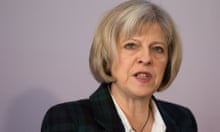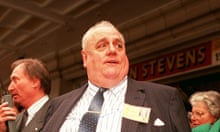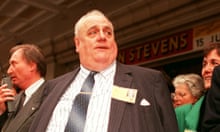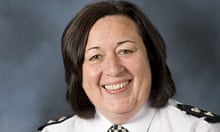The Independent Police Complaints Commission (IPCC) is investigating allegations of police corruption in London relating to child sex offences dating back to the 1970s, including that officers colluded in the coverup of a high-level paedophile ring.
The allegations, referred by the Metropolitan police, include suppressing evidence, hindering or halting investigations and covering up offences because of the involvement of MPs and police officers.
“These allegations are of historic[al], high-level corruption of the most serious nature,” said Sarah Green, the IPCC deputy chair, on Monday. “We will oversee the investigations and ensure that they meet the terms of reference that we will set. Allegations of this nature are of grave concern and I would like to reassure people of our absolute commitment to ensuring that the investigations are thorough and robust.”
Parallel investigations by the Met into the original allegations of child abuse and the new criminal investigations looking at alleged police corruption are closely linked and well under way, said a spokesperson for the IPCC.
“Therefore, after careful assessment, the IPCC will manage the investigations being conducted by the MPS’s [the Met’s] directorate of professional standards,” the IPCC spokesperson added.
One allegation is that an inquiry involving an operation targeting young men in Dolphin Square, near Westminster, was stopped because officers were too near prominent people.
Another involves a document found at an address of a paedophile, which originated from the houses of parliament and listed a number of highly prominent individuals (MPs and senior police officers) as being involved in a paedophile ring, where no further action was taken.
The IPCC will look into 16 allegations, including one involving a surveillance operation in the late 70s that gathered intelligence on a politician being involved in paedophile activities and was closed down by a senior Met officer.
The allegations emerged while officers were working on Operation Fairbank and relate to 1970-2005.
The Met recognised the severity of the allegations and the importance of understanding whether or not officers acted inappropriately, voluntarily referring the 16 allegations to the IPCC. Ongoing investigations and recent convictions by officers from the Sexual Offences, Exploitation and Child Abuse Command have shown that the Met is fully committed to investigating older allegations of sexual abuse.
Last year, a former Scotland Yard detective who won plaudits for his work on cases including the murder of Stephen Lawrence claimed that he was moved from his post earlier when he revealed plans to investigate politicians over child abuse claims.
Speaking about his inquiries in 1998 into activity alleged to have taken place in Lambeth children’s homes in the 80s, retired DCI Clive Driscoll said his work was “all too uncomfortable to a lot of people”.
The Met began Operation Midland last November after allegations that boys were sexually abused by a paedophile ring at a number of addresses more than 30 years ago. An alleged victim of sexual abuse claimed to have witnessed the murder of a 12-year-old boy by a Conservative MP and said two other boys had been murdered by members of a paedophile network.
One of those addresses was the Dolphin Square apartment block near parliament. Detectives have received claims that led them to investigate other addresses, to establish whether they can be ruled in or out of their inquiries.
The National Association for People Abused in Childhood (Napac) said the IPCC announcement on Monday was “incredibly important” and “hugely welcome”.
Pete Saunders, its chief executive, credited Theresa May for being a proactive home secretary and praised survivors. “We have to thank survivors for coming forward with credible allegations. They can’t be resisted any longer,” he said, predicting a number of high-profile arrests.
Yvette Cooper, the shadow home secretary, however, called for an investigation independent of the Met.
“Given the gravity of the crimes being investigated, it is worrying that this is not a fully independent investigation. Instead the Met will lead this work with oversight from the IPCC. Surely this should be done by an independent investigator or, at the very least an alternate force,” she said.
Last week, May said the reformed independent inquiry into child abuse would be placed on a statutory footing “to compel witnesses to determine whether state and non-state institutions have taken seriously their duty of care to children”.
The home secretary said she had listened to demands from the survivors that the period of time covered by the inquiry should be extended. She said there would be no cut-off point for investigations.
The inquiry is to be chaired by Justice Lowell Goddard from New Zealand. Its four panel members are Drusilla Sharpling, an inspector with Her Majesty’s Inspectorate of Constabulary, Prof Alexis Jay, author of the report into the Rotherham child sex scandal, Ivor Frank, an expert in family and human rights law, and Malcolm Evans, chair of the UN subcommittee for the prevention of torture.
May has said survivors had to have a strong voice in the work of the inquiry and Goddard would soon announce the setting up of a consultative panel of survivors and victims and would seek their views on who should be on it.






